Shape Recognition Numbers Worksheets for Ages 6-7
7 filtered results
-
From - To
Discover our engaging Shape Recognition Numbers Worksheets designed specifically for children aged 6-7! These interactive resources help young learners develop essential math skills by blending number recognition with shape identification. Each worksheet is crafted to make learning fun and effective, featuring vibrant illustrations and age-appropriate exercises. As kids complete activities, they'll enhance their cognitive abilities while building a strong foundation in mathematics. Perfect for home or classroom use, our worksheets encourage creativity and critical thinking, ensuring that kids grasp core concepts confidently. Explore our collection today and support your child's educational journey with engaging hands-on learning!
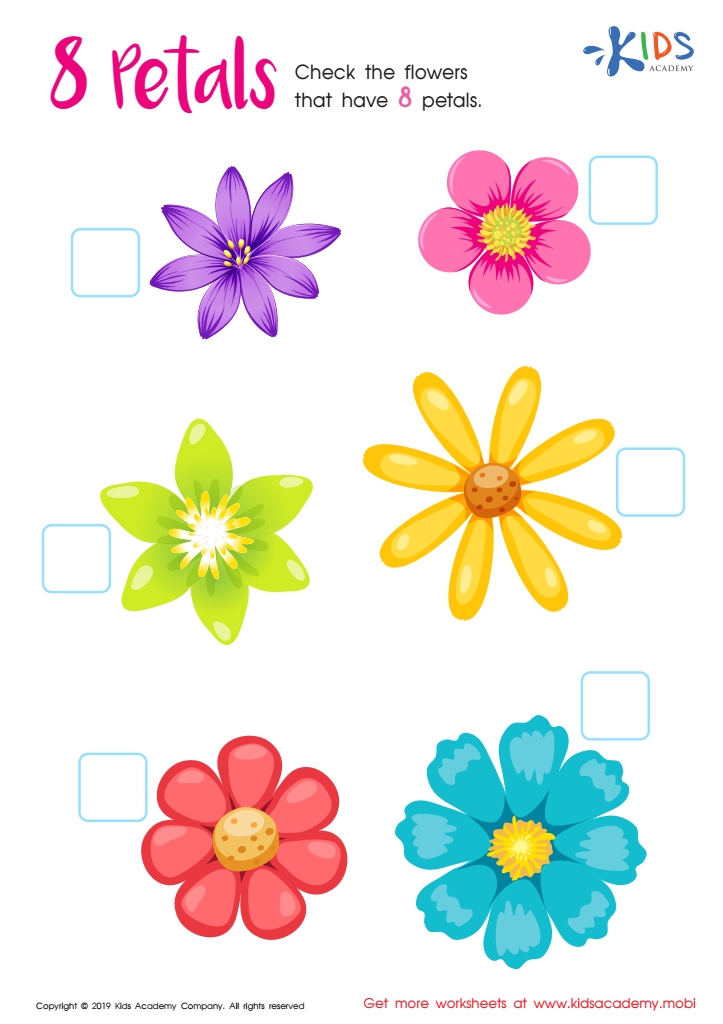

8 Petals Worksheet
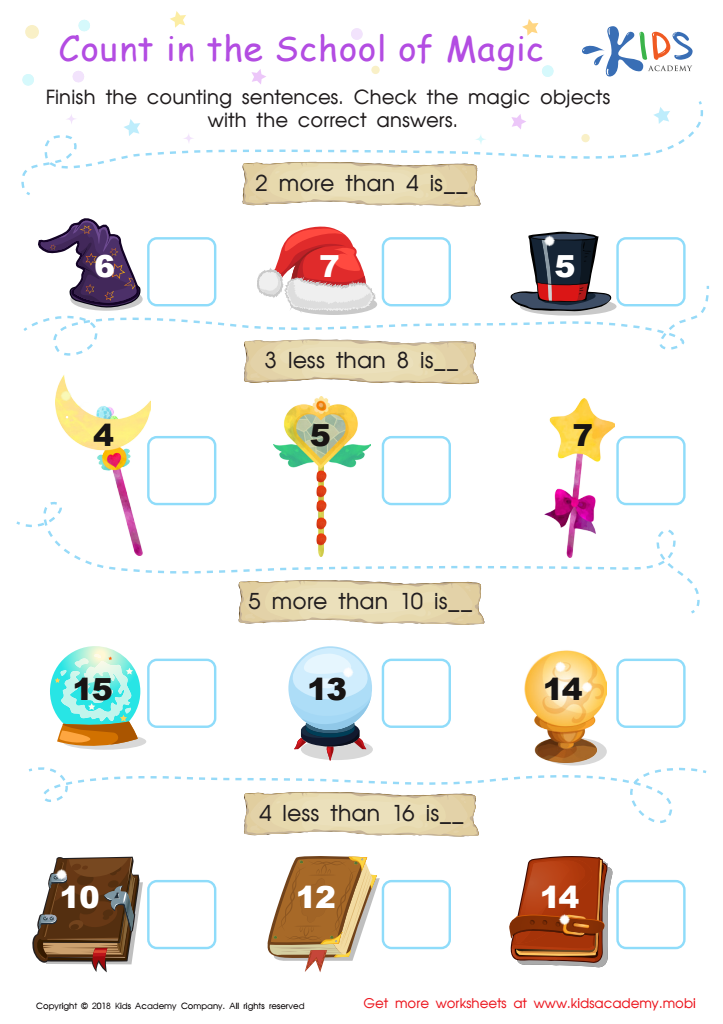

Count in the School of Magic Worksheet
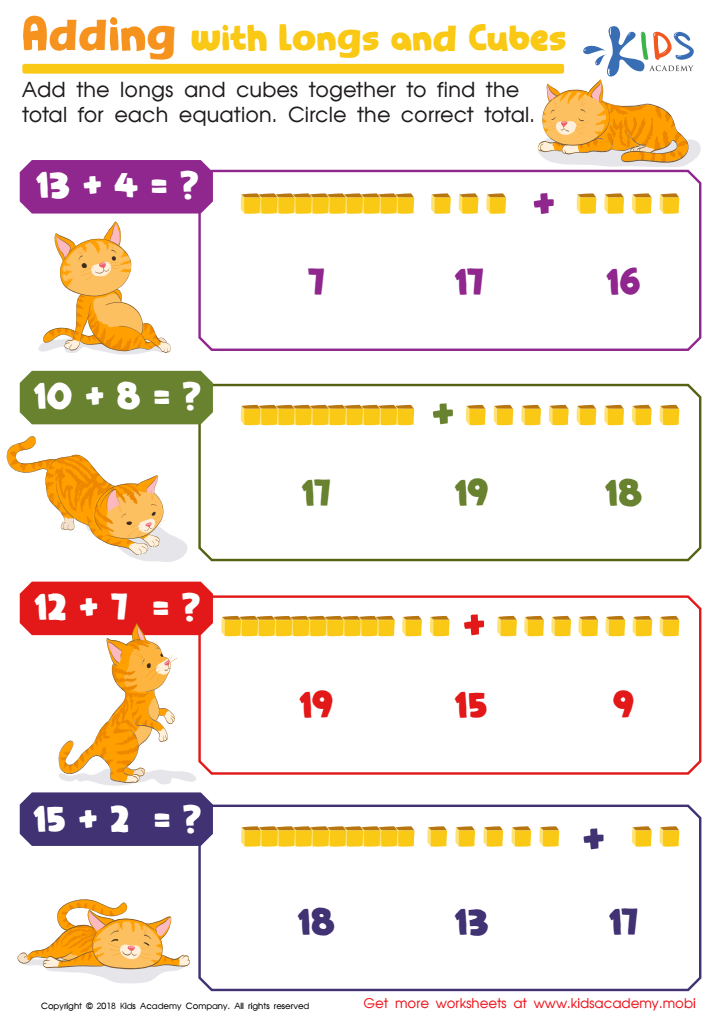

Adding With Longs and Cubes Worksheet
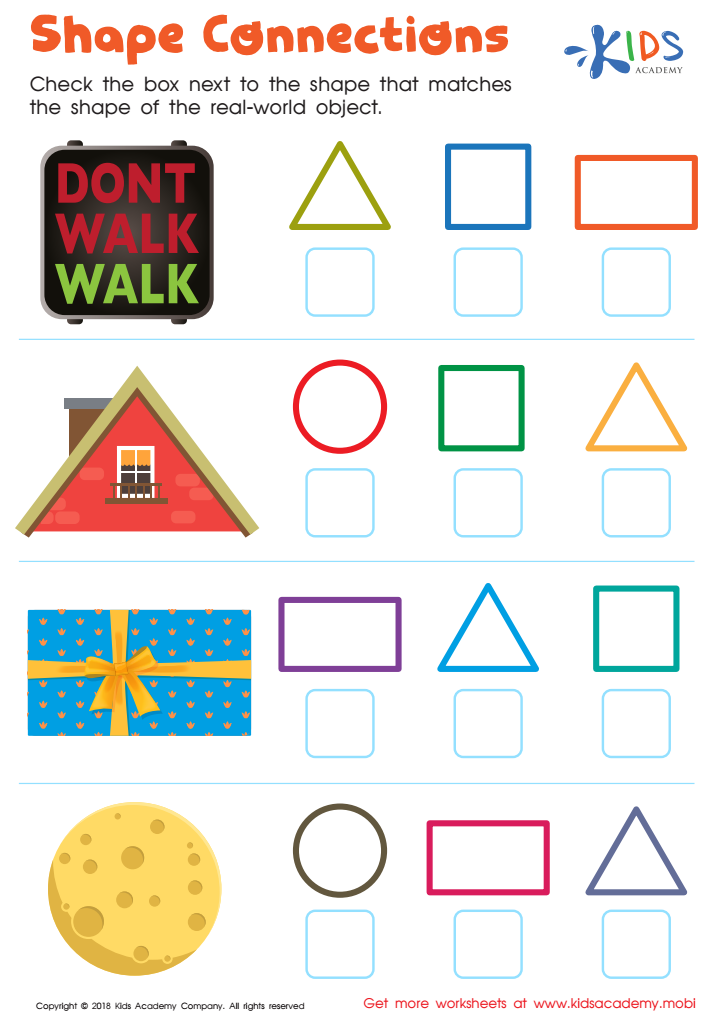

Shape Connections Worksheet
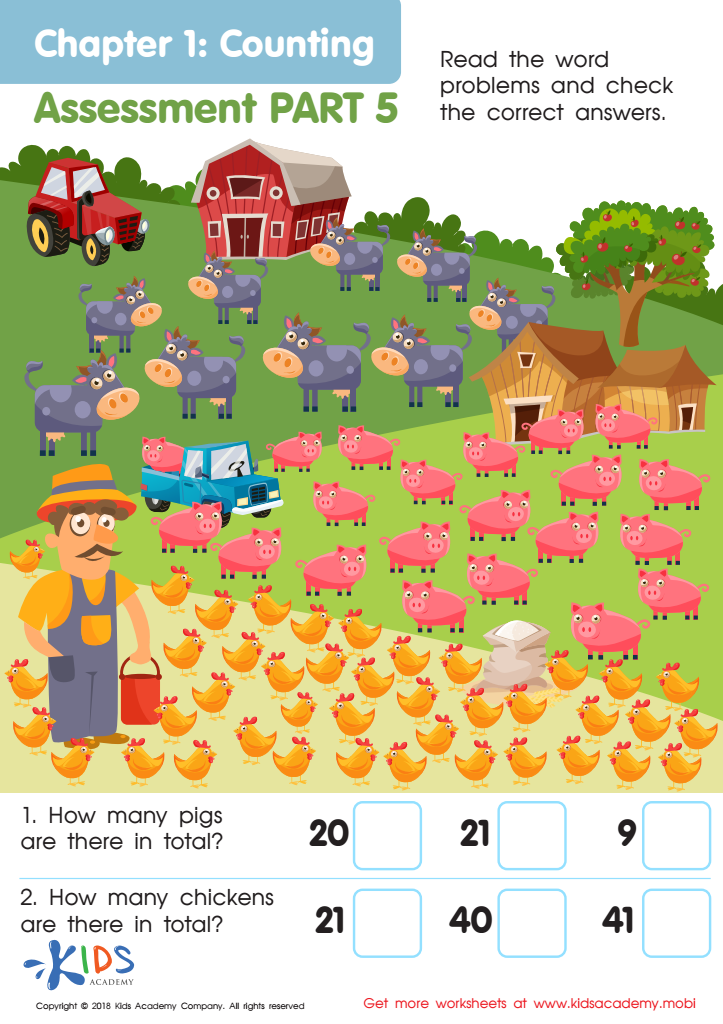

Counting: Assessment 5 Worksheet
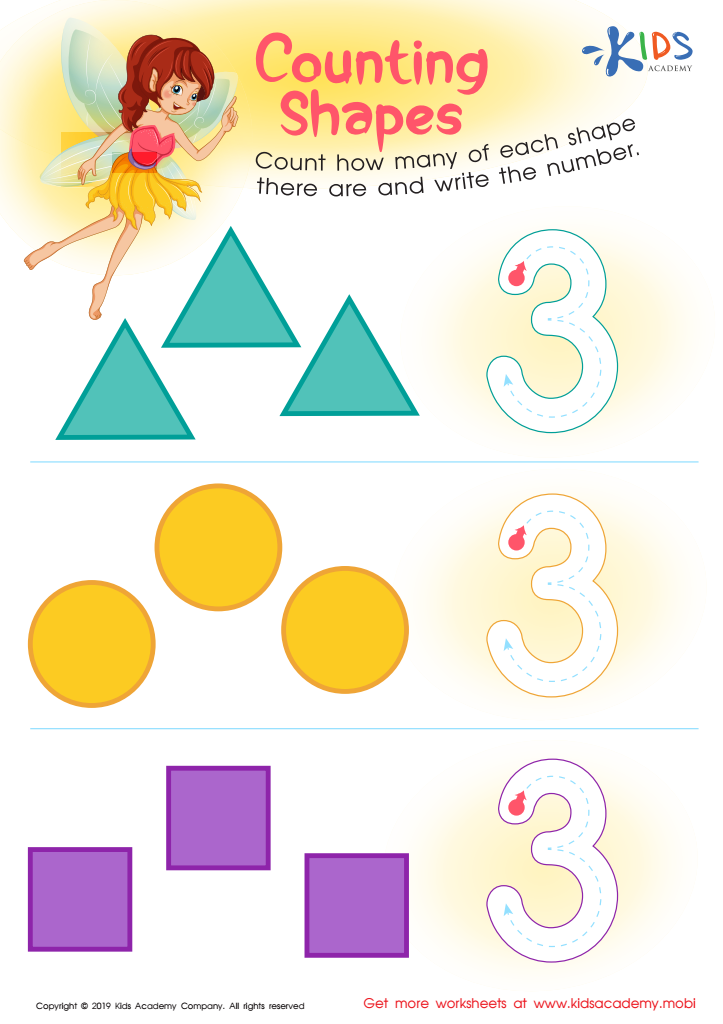

Counting Shapes Worksheet
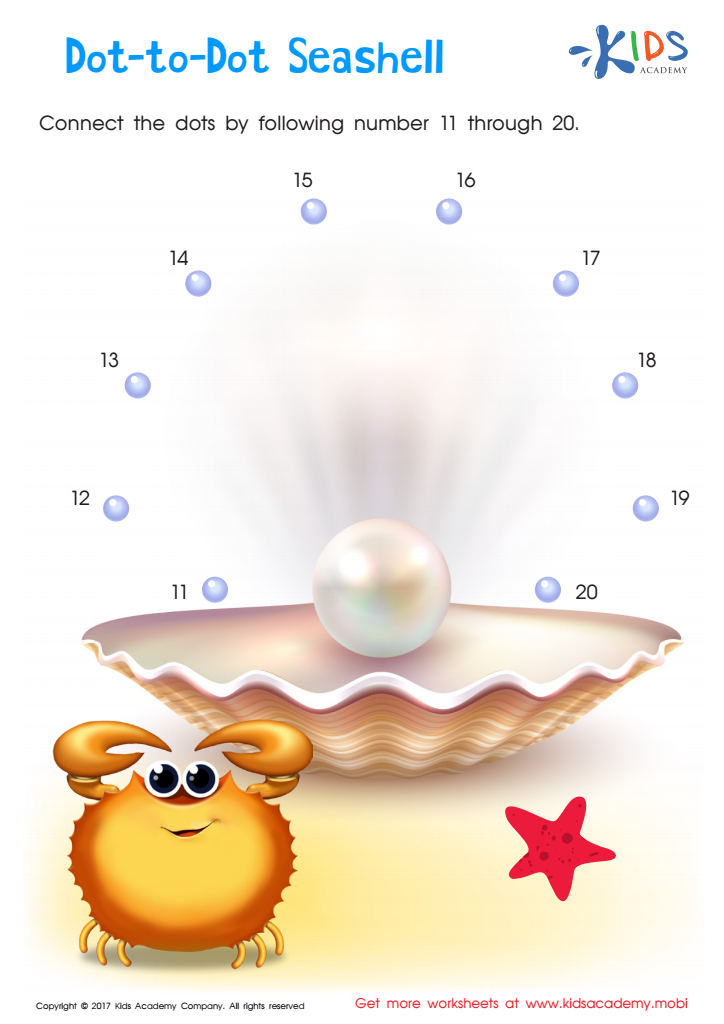

Ordering 11–20: Dot–to–dot Seashell Printable
Shape recognition is a fundamental skill for children ages 6-7, serving as a cornerstone for their mathematical and cognitive development. At this stage, children are learning to identify, classify, and understand various geometric shapes. Recognizing shapes aids not only in math but also in everyday life, enhancing spatial awareness and problem-solving skills.
For parents and teachers, prioritizing shape recognition is crucial because it lays the groundwork for more complex concepts, such as addition, subtraction, and basic geometry. Mastering shapes encourages critical thinking, as children learn to identify attributes and differences among them. It fosters creativity, as recognizing shapes is essential in art and visualization activities.
Additionally, shape recognition plays a role in language development, as children learn the vocabulary associated with shapes. Engaging in shape-related activities boosts confidence and promotes collaborative learning, critical at this age where peer interaction is vital.
Moreover, strong shape recognition skills can positively influence a child's performance in standardized testing later in their educational journey. Therefore, investing time in this area not only contributes to immediate learning goals but also helps shape their future academic success. Ultimately, ensuring children develop solid shape recognition skills is essential for lifelong learning.
 Assign to My Students
Assign to My Students




















